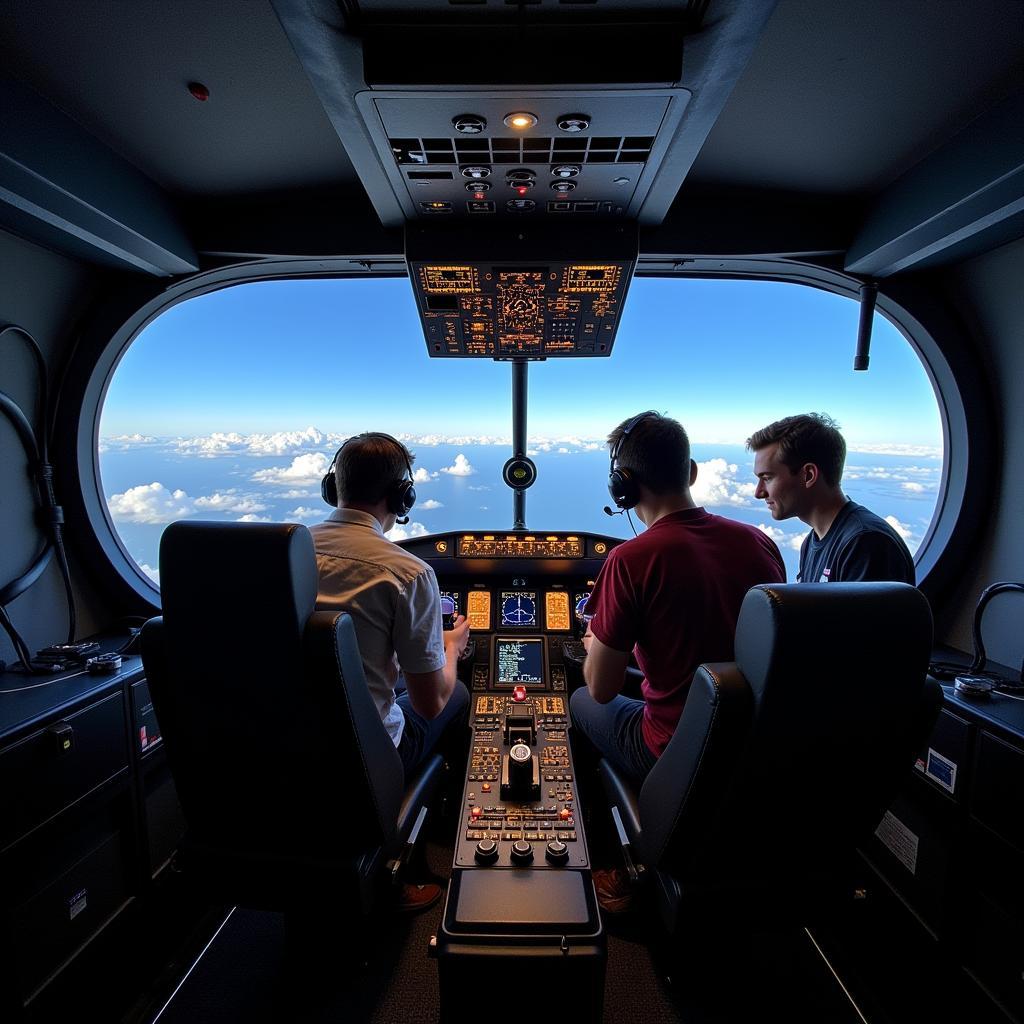African Institute for Aviation: Launching Your Career in Africa’s Skies
The African Institute For Aviation (AIFA) stands as a beacon for aspiring aviation professionals across the continent. With the African aviation sector experiencing unprecedented growth, the demand for skilled pilots, air traffic controllers, and maintenance technicians is skyrocketing. AIFA plays a pivotal role in bridging the skills gap by providing world-class training and education, shaping the future of African aviation.
Why Choose an Aviation Career in Africa?
Africa’s aviation industry is on an exciting trajectory. The International Air Transport Association (IATA) predicts that Africa will become the fastest-growing aviation market in the world over the next two decades. This growth translates into an abundance of career opportunities for passionate individuals seeking to join this dynamic sector.
Beyond the sheer number of job openings, a career in African aviation offers the chance to be part of a transformative period. As air travel becomes increasingly accessible to more Africans, it fosters economic growth, promotes tourism, and strengthens ties across the continent and beyond.
Why AIFA Stands Out
Choosing the right training institute is paramount to a successful aviation career. Here’s why AIFA is the ideal choice for aspiring aviation professionals:
1. World-Class Training Programs:
AIFA offers a comprehensive range of internationally recognized aviation training programs, including:
- Pilot Training: From private pilot licenses to commercial pilot licenses with various ratings, AIFA equips aspiring pilots with the skills and knowledge to navigate the skies confidently.
- Air Traffic Control: AIFA’s rigorous air traffic control program prepares individuals for the high-pressure demands of managing airspace and ensuring the safe and efficient flow of aircraft.
- Aircraft Maintenance Engineering: Maintaining the safety and reliability of aircraft is crucial. AIFA’s aircraft maintenance engineering program produces highly skilled technicians capable of handling the complexities of modern aircraft.
 Students Training in AIFA's Flight Simulator
Students Training in AIFA's Flight Simulator
2. Experienced Instructors
AIFA boasts a faculty of highly experienced instructors who bring a wealth of knowledge from both the African and international aviation landscapes. Their practical insights and real-world experience provide students with invaluable guidance throughout their training journey.
“Our instructors are the backbone of AIFA. They’re not just teachers; they are mentors who are deeply invested in the success of each student,” says Captain Abasi Okon, Head of Pilot Training at AIFA.
3. State-of-the-Art Facilities
AIFA understands that hands-on experience is crucial in aviation training. The institute provides access to state-of-the-art facilities, including flight simulators, aircraft maintenance workshops, and air traffic control simulation centers, ensuring graduates are fully prepared for the realities of the aviation industry.
4. Focus on Safety
Safety is paramount in aviation, and AIFA has made it an integral part of its culture. The institute adheres to the strictest international safety standards and instills a strong safety consciousness in all its students.
“Safety is not just a priority at AIFA; it’s deeply ingrained in everything we do. Our graduates leave here not only as skilled professionals but also as staunch advocates for safety in all aspects of aviation,” emphasizes Ms. Nadia Omar, AIFA’s Safety Manager.
5. Career Placement Support
AIFA goes beyond providing top-notch training; the institute is committed to supporting its graduates’ career journeys. Through partnerships with airlines and aviation organizations across Africa, AIFA assists graduates in securing employment opportunities within the industry.
Taking Flight with AIFA
Embarking on a career in aviation is an exciting endeavor, and the African Institute for Aviation provides the perfect launchpad for success. With its commitment to excellence, world-class training programs, experienced faculty, and focus on safety, AIFA equips its graduates with the skills, knowledge, and confidence to soar to new heights in the African skies. Contact AIFA today to learn more about their programs and how you can be a part of the dynamic future of African aviation.
Frequently Asked Questions (FAQs)
1. What are the entry requirements for AIFA’s programs?
Entry requirements vary depending on the program. Generally, applicants should have a high school diploma or equivalent, meet specific academic criteria, and pass entrance exams.
2. Does AIFA offer scholarships or financial aid?
Yes, AIFA is committed to making aviation education accessible and offers a range of scholarships and financial aid opportunities to eligible students.
3. How long do AIFA’s training programs typically take to complete?
Program duration varies depending on the course. For instance, pilot training programs can range from 18 months to two years, while aircraft maintenance engineering programs might take three to four years.
4. Does AIFA assist with job placement after graduation?
Yes, AIFA has a dedicated career services department that provides guidance and support to graduates in securing employment opportunities within the aviation industry.
5. Is AIFA recognized by international aviation authorities?
Yes, AIFA’s training programs are recognized by international aviation authorities, including the International Civil Aviation Organization (ICAO).
Ready to Begin Your Aviation Journey?
For inquiries or assistance, please contact us at:
Phone Number: +255768904061
Email: kaka.mag@gmail.com
Address: Mbarali DC Mawindi, Kangaga, Tanzania
Our dedicated support team is available 24/7 to assist you.


